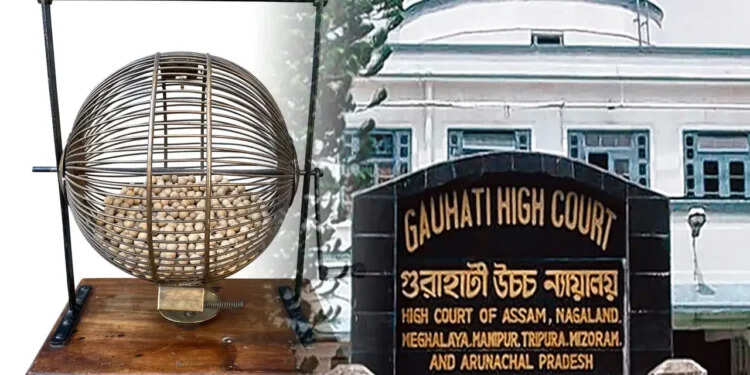Gauhati High Court Orders Assam Government to Crack Down on Online and Offline Lotteries

On October 3, 2024, the Gauhati High Court made legal history by sending the Assam State Government an urgent directive that stipulated strict and immediate actions to be taken against the organisation of both online and offline lotteries within the state. The court's decision is a reaction to growing worries about the popularity and prevalence of lottery systems, both online and off. These systems have been linked to a number of problems, including financial exploitation of weaker members of society and illicit activities.
With the help of both legal and illicit sources, lotteries have become more and more prevalent in Assam in recent years. The court's involvement attempts to curb this expanding influence. The High Court made it clear in its ruling that lotteries, whether they are run by government-approved organisations or not, must be quickly and severely restricted. The directive emphasises the necessity of a coordinated effort by local authorities by calling for comprehensive action in all of the state's districts.
District officials, such as Deputy Commissioners (DCs) and Superintendents of Police (SPs), are primarily accountable for the court's ruling. They have been directed to refuse authorisation for any lottery-related activities, whether they take place in person or virtually. The court underlined that these officials need to take proactive measures to make sure that no lottery-related event or activity occurs without following the law. Additionally, it urged DCs and SPs to intensify their enforcement and monitoring measures, especially in regions where lottery activities are most common.
The Gauhati High Court also emphasised the necessity of taking swift legal action against any people or organisations that are in charge of setting up or marketing these lotteries. The state has witnessed an increase in both online and offline lottery operations, which have frequently resulted in large financial losses for unwary players. This coincides with the court's order. Although the government regulates some lotteries, the great majority operate unlawfully, frequently with little to no inspection, and take advantage of those who are less fortunate financially.
The High Court's decision further mandates that the Assam government make sure that the verdict is swiftly and strictly enforced by all relevant authorities. A deadline of one week has been set for the administration to carry out the order and provide the court with an update on its progress. The ruling by the top court emphasises how urgently the state's government must address the problem and re-establish law and order.
Assam's growing number of offline and online lotteries has sparked a number of worries, chief among them the ways in which these endeavours exacerbate economic instability among the poorer classes. Critics contend that although lotteries may present the opportunity for instant wealth, they frequently function as a type of gambling that disproportionately impacts the less fortunate members of society. The court's decision attempts to reduce these risks by guaranteeing stringent regulatory control and prohibiting unlicensed lotteries.

The High Court expressed concerns in its ruling on the accountability and openness of lottery operations, recommending that both legal and illegal lotteries be subject to more stringent oversight. For other states dealing with comparable problems, the court has established a precedent by ordering district authorities to adopt preventive measures.
It will now be extremely difficult for the Assam government to abide by the court's ruling in the allotted period. Even if it's unclear how well the authorities will carry out the direction, this case has once again brought attention to the role played by official institutions in controlling actions that have significant socioeconomic effects.
Many are keeping a close eye on the approaching deadline to see if the Assam government can comply with the court's requests and stop the state's lotto trend. The court's ruling represents a major step in preserving public welfare and reducing the negative impacts of illicit and unlicensed lottery schemes in Assam.
--
